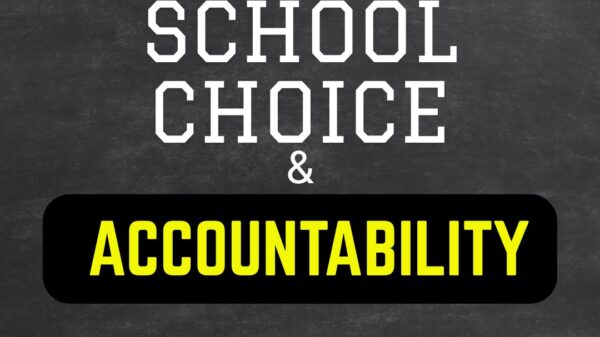In a significant legal move, ten parents and taxpayers from Tennessee have filed a lawsuit in Davidson County Chancery Court contesting the state’s newly implemented school voucher program, known as the Education Freedom Scholarship Act.
This initiative, championed by Governor Bill Lee, allocates approximately $7,295 per student for private school tuition and other educational expenses, with plans to aid up to 20,000 students in the 2025-26 school year. The program launched this academic year after being signed into law in Feb. 2025.
The plaintiffs are backed by a coalition of advocacy groups, including:
• American Civil Liberties Union (ACLU) of Tennessee
• Education Law Center
• Southern Poverty Law Center
• Southern Education Foundation
• Robbins Geller Rudman & Dowd law firm
The defendants in the case are:
• Governor Bill Lee
• Education Commissioner Lizzette Reynolds
• Members of the Tennessee Board of Education
Core Arguments of the Lawsuit
The lawsuit asserts that the voucher program contravenes the Education Clause of the Tennessee Constitution (Article XI, Section 12), which mandates the General Assembly to ensure “the maintenance, support, and encouragement of a system of free public schools.” Key points raised by the plaintiffs include:
1. Diversion of Funds: The program diverts public funds intended for the public school system to private institutions not governed by the same standards.
2. Impact on Public Education: It undermines the adequacy of public education by siphoning resources from already underfunded schools, which struggle with issues such as teacher shortages and insufficient funding.
3. Accountability Concerns: The voucher program finances private schools that are not required to:
• Administer the Tennessee Comprehensive Assessment Program (TCAP) tests, opting instead for national assessments.
• Adhere to the same curriculum and teacher certification standards as public schools.
• Maintain transparency in operations.
• Avoid discrimination based on factors such as disability, religion, and academic ability.
• Provide federally mandated services, including special education under the Individuals with Disabilities Education Act (IDEA).
• Offer true “free” education, as many may charge additional tuition beyond the voucher amount.
The plaintiffs contend that these issues foster an unregulated parallel education system that drains taxpayer dollars while failing to ensure equitable access for all students.
BACKGROUND ON THE VOUCHER PROGRAM
• 2025-26: Approximately 20,000 vouchers are expected to be awarded from around 43,000 applications. Half of these vouchers are prioritized for low-income or disabled students, while the other half is open to all eligible students. It is estimated that as many as 80% of the awarded scholarships were previously enrolled in private schools. Recent data also indicates that 602 students from Hamilton County are benefiting from Governor Bill Lee’s Education Freedom Scholarship program by enrolling in private schools, including nearly 50 students at a Muslim school dedicated to Islamic studies.
• Financial Implications: The program’s initial cost is estimated at $150 million, with projections suggesting it could balloon to $1 billion over five years if expanded.
• Historical Context: This marks Tennessee’s first universal voucher initiative, differing from a previous limited Education Savings Account (ESA) pilot that faced legal challenges but was ultimately upheld.
Response
Governor Lee’s office expressed confidence in the program, stating, “We’re confident the court will uphold this important program that the vast majority of Tennesseans support and for which more than 40,000 families applied.” Plans are in motion to further expand the initiative in the 2026-27 school year.
JC Bowman, executive director of Professional Educators of Tennessee, commented on the potential outcomes of the lawsuit, noting that similar challenges in other states have yielded mixed results. He highlighted that the court’s interpretation of state-specific constitutional language regarding public school systems will be the crucial factor.
Bowman elaborated that if Tennessee courts align with Arizona’s precedent, the program could be upheld. However, should they focus on the constitutional requirement for a unified public school system, the plaintiffs might succeed, drawing parallels to past rulings in states like Colorado and Florida. He also cautioned that Arizona’s experience illustrates that universal voucher programs can lead to skyrocketing costs and accountability issues, even if they withstand legal scrutiny.
According to TriStar Daily Publisher and leading conservative Steve Gill, “the inclusion of Muslim schools in the universal school voucher programs has sparked backlash among some conservatives, revealing concern for the program.” He pointed to Florida Attorney General James Uthmeier who has raised alarms about “Sharia law” in Muslim schools. Some conservatives also frame this inclusion as a national security risk linked to anti-American sentiments.
As of today, state officials have not filed a formal response to the lawsuit, which remains in its early stages. This case represents the first major legal challenge to the statewide voucher initiative, distinct from earlier ESA lawsuits, and it may take years to reach a resolution.















